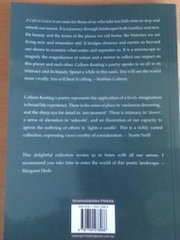The Vincent Lingiari Memorial Lecture for 2015 caught my attention recently. It is called ” Custodianship in the Twentieth-first Century given by Jeff McMullen. Most of you would realise it is in memory of the Wave Hill walk off in August 1966. It is a valuable read, can be found on line and it reminds us we still have a lot of work to do to be the Nation we can be proud to call ours. Anyway it begins with these words:
“The great power of the Vincent Lingiari story is that it teaches us how this land sings to us all, how it holds us and nurtures us. This is the common ground we all share.” And I thought wow. . . I did hear it sing that day out on the Larapinta Trail west of Alice Springs and here is the poem of that day. Enjoy
ormiston pound
we climb an ancient path
to the rattle of our tin mugs
and the chinkle of boots disturbing stones
as they shift awkwardly underfoot
quartzite
flanks each side
and summons up rough sharp spurs
serrated edges
like bread knives
cutting the sky
give direction
flints of mica catch the light
blinding and brooding black rocks watch
as menacing phantoms
at the top
we sit breathless
and hot
the wide expanse of ormiston pound
like an enormous bunker
lies below
air drifts with heat and layers of cool
we listen to white man’s story
while an acacia bush nearby
growing from a rocky outcrop
sings to me another story
on the dreaming wind


